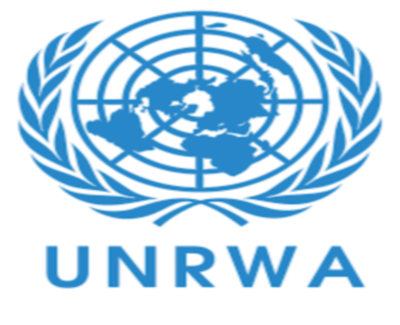The Trump administration’s solution to the Palestinian-Israeli conflict will be unveiled later this month in Bahrain — and a critical U.N. program for Palestinian refugees may be at risk

The so-called deal of the century, heralded by the Trump administration as the solution to the Palestinian-Israeli conflict, will be unveiled, at least in part, at the Bahrain conference in late June. Sources have indicated that one of the topics for discussion will be the United Nations Relief and Works Agency for Palestine Refugees in the Near East (UNRWA), the agency that has provided critical services to millions of Palestinian refugees for nearly 70 years.
The U.S. administration has accused UNRWA of perpetuating the existence of Palestinian refugees and hence being “part of the problem” — rather than part of the solution — between Israel and the Palestinian territories. Such an uninformed opinion, which led to the United States this year curtailing its entire contribution to UNRWA (an average of $360 million annually), ignores both UNRWA’s mandate and the essential facts about Palestinian refugees. It also jeopardizes the United States’ standing as an important international actor for humanitarian aid.
A history of UNRWA
UNRWA was established by the U.N. General Assembly in 1949 primarily to provide relief and assistance to Palestinian refugees until the establishment of a permanent political solution to the conflict. The whole U.N. system established for Palestinian refugees, as recognized under Article 1D of the 1951 Convention Relating to the Status of Refugees, and of which UNRWA is a lasting part, was a consequence of the events that befell Palestinians between 1947 and 1948.
UNRWA’s initial mandate lasted three years, during which time a political solution would be negotiated. Alas, a political solution still has not been found, and UNRWA has become the longest U.N. “temporary” mandate ever established and has remained a subsidiary body of the General Assembly. By providing some of the highest-quality education in the region, health services, jobs, relief and social services to millions of refugees, UNRWA has ensured refugees’ dignity and resilience and contributed to regional stability.
Member states of the General Assembly have demonstrated their support for the agency by renewing UNRWA’s mandate and approving its budget and operations. Any allegation of UNRWA serving Palestinian political interests is simply misguided.
UNRWA cannot change its mandate. Palestinian refugees exist because of a decades-long failure to find solutions to the root causes of their displacement and underlying political crises. The number of Palestinian refugees continues to grow because, under international law, the children of refugees and their descendants are also considered refugees until a durable solution is found.
International support for UNRWA
Operating in a challenging environment, amid growing numbers of refugees and increasingly inadequate financial means, UNRWA is certainly an easy target for the U.S. administration, which — as of 2018 — has actively tried to ensure that there are not more than a handful of refugees who could claim rights to return to present-day Israel. Delegitimizing UNRWA and the refugees it serves is just a step in this process.
Yet the U.S. administration’s attitude does not take into account that U.N. member states’ failing to find a solution to the root causes of the conflict — and not UNRWA — has perpetuated the plight of Palestinian refugees.
International support for UNRWA has been a prime example of responsibility-sharing for refugees — a concept that is also underscored in the New York Declaration for Refugees and Migrants (NYD) and the Global Compact on Refugees (GCR), adopted by the U.N. General Assembly in 2016 and 2018, respectively. Today, UNRWA enjoys support from more than 40 government donors.
Looking ahead: Economic opportunities and fundamental rights
Resolving the Palestinian refugee question requires political will, together with support for a principled approach based on international law, that also helps overcome the marked asymmetry of the negotiating parties. Seventy years after Palestinians became refugees, supporting UNRWA, while using U.N. political forums to be more effective and strategic, is the most logical and moral consequence of the international responsibility toward the largest and most protracted refugee group in modern history.
Talk about the “deal of the century” insinuated that it will bring economic progress to Palestinians. But economic opportunities are not a substitute for peace, especially when peace is held hostage by a stalled political process and violations of international law spanning decades.
In 1949, the U.N. Economic Survey Mission envisioned resolving the Palestinian refugee situation by creating job opportunities through which refugees could de facto locally integrate into Arab host countries. But that effort failed, largely because both refugees and Arab states demanded a political solution that takes into account the rights of the refugees.
It is unlikely today that either the refugees or the states that host them would see the prospect of more economic opportunities as any kind of lasting solution in the absence of any plan to deal with the refugees’ rights and historic claims. Also, economic solutions don’t come overnight; people need to be educated and have job prospects to build economic solutions — and schools, vocational training and jobs are among the most important services UNRWA provides.
Representatives would better spend their time in Bahrain working on a plan to bring the occupation to an end, a necessary precondition to fully realize the self-determination of the Palestinians and to find a lasting solution to the plight of Palestinian refugees that is in line with relevant U.N. resolutions and international law. What good are economic opportunities without the realization of fundamental rights?
WASHINGTON POST


Leave a Reply
You must be logged in to post a comment.